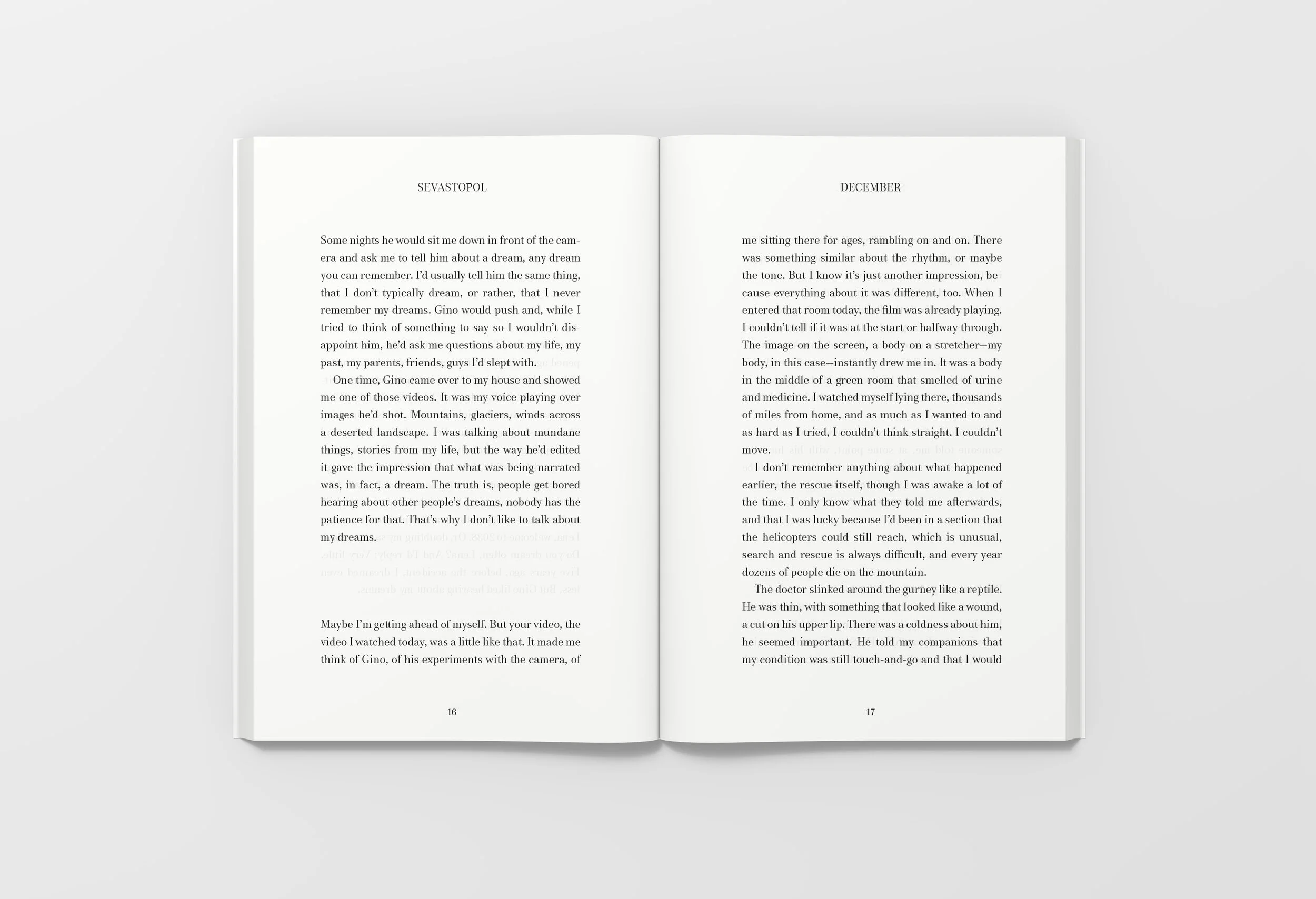Sevastopol | by Emilio Fraia




Sevastopol | by Emilio Fraia
Translated from the Portuguese by Zoë Perry
Three subtly connected stories converge in this chimerical debut, showcasing a powerful new Brazilian voice
Sevastopol contains three distinct narratives, each burrowing into a crucial turning point in a person’s life: a young woman gives a melancholy account of her obsession with climbing Mount Everest; a Peruvian-Brazilian vanishes into the forest after staying in a musty, semi-abandoned inn somewhere in the haunted depths of the Brazilian countryside; a young playwright embarks on the production of a play about the city of Sevastopol and a Russian painter portraying Crimean War soldiers.
Inspired by Tolstoy’s The Sevastopol Sketches, Emilio Fraia masterfully weaves together these stories of yearning and loss, obsession and madness, failure and the desire to persist, in a restrained manner reminiscent of the prose of Anton Chekhov, Roberto Bolaño, and Rachel Cusk.
Publication 1 June 2021
Description 198 × 129 mm, 144 pages, Softcover Original
ISBN 978-1-9999928-3-5
Design OK Studio
Read an excerpt in The New Yorker
Read an interview with Emilio Fraia in The New Yorker
Read a conversation between Emilio Fraia and Zoë Perry for Partisan Hotel: A Sleepy, Sort of Phosphorescent Blue
EMILIO FRAIA was born in São Paulo in 1982. Sevastopol, his third book, was one of the winners of the Biblioteca Nacional Prize and a finalist for the Oceanos Prize and Jabuti Prize. One of Granta’s Best Young Brazilian Writers, Fraia has been awarded a Civitella Ranieri Writing Fellowship and is currently an editor at Companhia das Letras.
ZOË PERRY’s translations of contemporary Portuguese-language writers have appeared in The New Yorker, Granta, and Words Without Borders. She is a founding member of the London-based translators’ collective the Starling Bureau.
Praise for Sevastopol
A truly beautiful book that is hard to describe without using words like precision, subtlety and, mostly, wisdom
– Alejandro Zambra
Like the writers I most admire, Fraia sets for himself the hardest and most respectable task a writer can face: unravelling the mystery without revealing the secret
– Javier Montes
Fraia captures a very specific sense of what it is like to live in São Paulo in the current political climate, but he also captures something much more universal: what it is like to live in a culture from which you feel entirely disconnected and, within that culture, to try to make art of any kind. I think that theme can speak to readers in any country
– Deborah Treisman
Graceful and melancholic, enhanced by Zoë Perry’s subtle translation... Impeccably realised, and this is another groundbreaking publication from newish Lolli Editions
– Catherine Taylor, The Irish Times, The Best New Literature in Translation
Somber, spare stories that let the reader crawl inside, searching for insight, only to be left greedily craving more
– Kirkus Reviews
If Graciliano Ramos describes the old, romantic Brazil of a century ago, Emilio Fraia describes something much more like the country that exists today—the country and people I know... The translation is excellent, by the way
– Benjamin Moser
Brilliant… Smuggled in under the cover of these stories of, as one character puts it, ‘lunatics and lost people’, is a portrait of Brazil in precipitous decline, riven by racism, inequality and violence. Fraia provides the reader with only a few outright glimpses of this covert narrative, preferring instead to dress it within the specific context of each story
– Marshall Shord, Southwest Review
Fraia manages to keep the common theme of storytelling as undercurrent, not drowning his stories in it (even as it is omnipresent), and the interweaving back-and-forth in each of the tales is very effective. It makes for a solid little volume – fine reading
– The Complete Review
Pointillist… The fragmentary character of this allusive, mercurial book is such that, when you finish it, you have an assortment of eye-catching puzzle pieces but no clear sense of how they’re meant to go together
– The Wall Street Journal
Beguilingly dreamlike… With remarkable agility, Fraia draws connections between voyeurism, narrative ethics, contemporary art and the no-man’s-land of memories that stir within dreams
– Adam Morris, TLS
Emilio Fraia taps Tolstoy for inspiration in this slim but moving collection of interconnected stories
– The Philadelphia Inquirer
Emilio Fraia, a master of the subjects of love and loss, has a knack for levering things into the reader sideways, and shockingly fast: it’s like getting a splinter, but much, much more enjoyable
– Barbara Epler, TANK Magazine
Three stories track the wanderings of contemporary Brazilians in Fraia’s subtle and melancholy English-language debut, a collection inspired by Leo Tolstoy’s Sevastopol Sketches
– Publishers Weekly
Fraia is interested not in the reality of things but its representation. That, after all, is what writing is about
– John Self, The Critic
These tales don’t operate the way most tales do; they adhere to their own separate sense of languid time
– Tope Folarin, Vulture, Best Books to Read This Summer
Fraia redefines the trauma of a physical battle through the lens of his characters’ struggles with nature, culture and the self. The over-layered voices throughout the book create vast worlds that feel nearly mythic, and all too real. Fraia’s aptness for storytelling in Sevastopol lies within the entrancing matter of human suffering
– Joshua Bohnsack, New City Lit
All three stories transmit human emotion in innately relatable fashion. Adventure and excitement combine with sadness, failure, and loss, all of this tinged with hope and a desire to carry on, woven through each narrative. Well written, Emilio Fraia’s clever prose ignites the imagination and keeps the reader engaged till the end
– BuzzMag
Absorbing… Whether through art, travel, physical exertion or literal disappearance, each of the characters we encounter is yearning to escape. Many-layered and exquisitely crafted, the disarming simplicity with which these stories are written belies their haunting complexity
– The Monthly Booking
A sharply observed trio of intricately connected stories. Sparse prose and hauntingly atmospheric
– Eleanor Updegraff
Meditative, mournful, and dreamlike… Fraia takes more than inspiration from the Sketches: his three narratives echo back and forth, in conversation with its themes, but also insistent on the question of whether one can ever tell where one story ends and another begins
– Jess Moody, Lunate
Sevastopol is a gentle marvel, each story offering a window, a reflection, a pool of shimmery blue – never darkness, no finales, no dead-ends. Their dilemma – how to make art amongst the ruins – seems universal and extraordinarily pertinent
– The Common Breath
Accurate language, powerful imagination
– Sérgio Sant’Anna
A literary jewel
– Fernanda Torres
